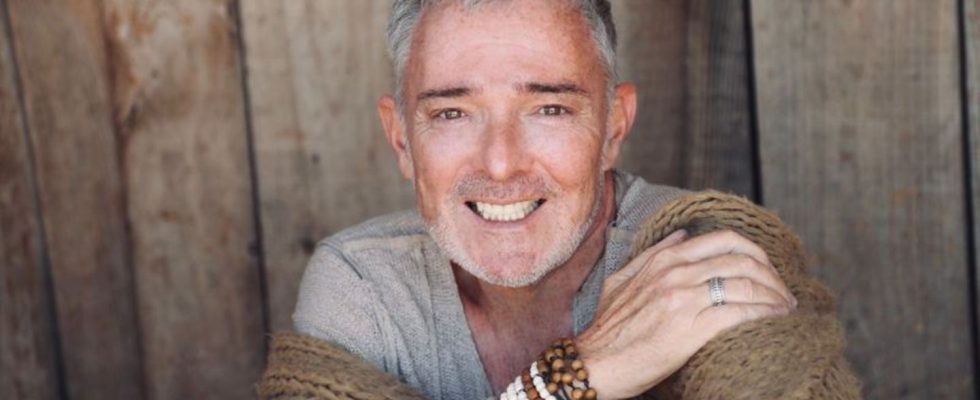Quite a few Germans move to Mallorca after retirement. However, the dream of an eternal vacation under the sun easily ends in loneliness and poverty. Why more and more pensioners are finding themselves in need.
At the beginning, Roland Werner only planned a kind of coffee klatch for German seniors who had emigrated to Mallorca. In 2017, the 62-year-old from Worms founded the aid organization “Herztat”. However, the association, with its prominent patron, TV presenter Birgit Schrowange, is now an aid organization that supports German emigrants – not only so that they can find their way abroad, but also to enable them to return home if necessary.
The sun shines in the sky. The thermometer in Mallorca shows 20 degrees, even though it’s still far from summer. Too warm to sit on the terrace in a sweater. Under such conditions, it is understandable that many Germans dream of escaping the cold, gray dreariness of their homeland and emigrating to the holiday island. Quite a few pensioners fulfill this wish, but many make serious mistakes in the process.
“I estimate that there are around 2,000 German-speaking seniors on Mallorca who are lonely – and the number is increasing,” says Werner, who offers pensioners a contact person with his “Herztat” foundation. But that is often no longer enough. “Some of them are already in an emergency situation and are literally neglected,” he says.
Rents in Mallorca are very high
Werner himself retired at the age of 52 for health reasons. He just didn’t want to lie on the couch. “I was looking for a new job,” he says, and contacted the German-speaking Protestant community on Mallorca. The “Hiking with Body and Soul” project already existed there. “Going on a trip once a month – that wasn’t enough for me,” says Werner. He was looking for a challenge, donated a six-figure sum and founded “Herztat”. “I have no children. This will be my inheritance.”
The story is almost always the same, says Werner: an older couple emigrates to Mallorca shortly after they retire. They pack up all their tents in Germany, cancel their insurance and deregister with the authorities. However, they refrain from registering in Spain. On the one hand it costs money, on the other hand they usually hardly speak a word of Spanish. “Depending on age, social security contributions amount to around 200 euros per month. Pensioners feel fit and think they can make ends meet even without health insurance,” says the 62-year-old. An often serious mistake.
As most people get older, they develop more and more disabilities. Seniors become ill and the cost of treatment eats up what little savings they have. If one of the spouses finally dies, there is a disaster. “A pension will no longer apply. However, the rental costs will remain the same,” says Werner. There is a great housing shortage in Mallorca. “Many Germans have the misconception that life on the island is cheaper. However, rents are higher than in most German areas. You cannot find a one-room apartment for less than 900 euros in Mallorca.”
There are also real emergencies
Originally the “Herztat” Foundation was only intended as a meeting point. Sponsors volunteer their time to drink coffee, go to the cinema or go to a concert with lonely pensioners. “This still exists, but two thirds of the people we care for are now emergencies,” says the initiator. Another problem is that people are ashamed of their situation. Friendships and contacts break down and those in need repeatedly cancel meetings because of money worries because the budget simply doesn’t allow coffee or beer. “Family and friends in Germany are usually angry right from the start when the senior runs away and emigrates to Mallorca,” says Werner. Hardly any help can be expected from this side. Finally, pensioners find it difficult to admit their predicament. “We could help many people much better if they had contacted us sooner.”
Without donations they couldn’t help
Schrowange became aware of the foundation two years ago. She made a documentary about poverty on the island. They got along well and the project manager asked whether the 65-year-old could imagine promoting “Herztat” as a patron. Ultimately, the organization also relies on donations, which have recently become increasingly less. “I’m healthy and fit, and life has been very kind to me. So I just want to give something back,” said Schrowange in an interview with “Mallorca Magazin”. She told the “Mallorca Zeitung” that she started looking after her retirement provision when she was 17.
Today, 40 sponsors look after emergencies. “These are mostly pensioners who come from Germany and Switzerland,” says Werner. Over time, the volunteers have become true experts in dealing with bureaucracy. First you have to look at how those in need can be included in health insurance. The public hospitals on Mallorca also treat uninsured patients, but then only vital measures are taken. “In the event of a heart attack, the person is immobilized, but no stent is placed, which would reduce the risk of another attack,” describes Werner.
The last resort is usually to return to Germany. “The social welfare offices have emergency programs, but it is not regulated by law,” says Werner. The “Herztat” sponsors contact the offices where the pensioners were last registered in Germany or where family members live and fight to ensure that those in need are accepted back into the system. The foundation then pays for the return flight and moving costs. “They are usually 500 euros,” says Werner.

